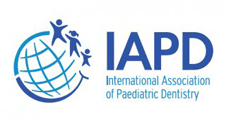Dental Emergencies in Children
December 3rd, 2025

Unfortunately, dental emergencies can sometimes be unavoidable among young children. The good news is Dr. Dinah Abioro can help you prepare in case you and your child find yourselves in any of the following situations.
Teething
Starting at about four months and lasting up to three years, your son or daughter may experience teething pain. It’s common for teething children to grow irritable and become prone to drooling due to tender gums. Give your child a cold teething ring or rub his or her gums with your finger to help relieve the discomfort.
Loss of Teeth
If a baby tooth is knocked out in an accident, bring your child to our Bowie office to make sure damage hasn’t occurred in the mouth. Permanent teeth can sometimes grow in before baby teeth have fallen out. In this situation, Dr. Dinah Abioro should examine your child to make sure teeth are growing in properly. This can prevent serious issues from arising later in adulthood.
Gum Issues
Bleeding gums could mean several things. They may be an early sign of periodontal disease, which results from poor oral hygiene. Gums may also bleed if a youngster is brushing too hard or has suffered an injury to the gum tissue.
Rinse your child’s mouth with warm salt water and apply pressure to the area if bleeding continues. Don’t hesitate to contact our Bowie office if you are concerned so we can schedule an appointment.
As a parent, you can provide the best education for your children on proper oral hygiene habits. If you some coaching, ask Dr. Dinah Abioro for tips during your next appointment.








